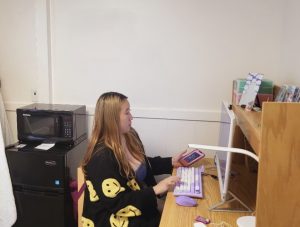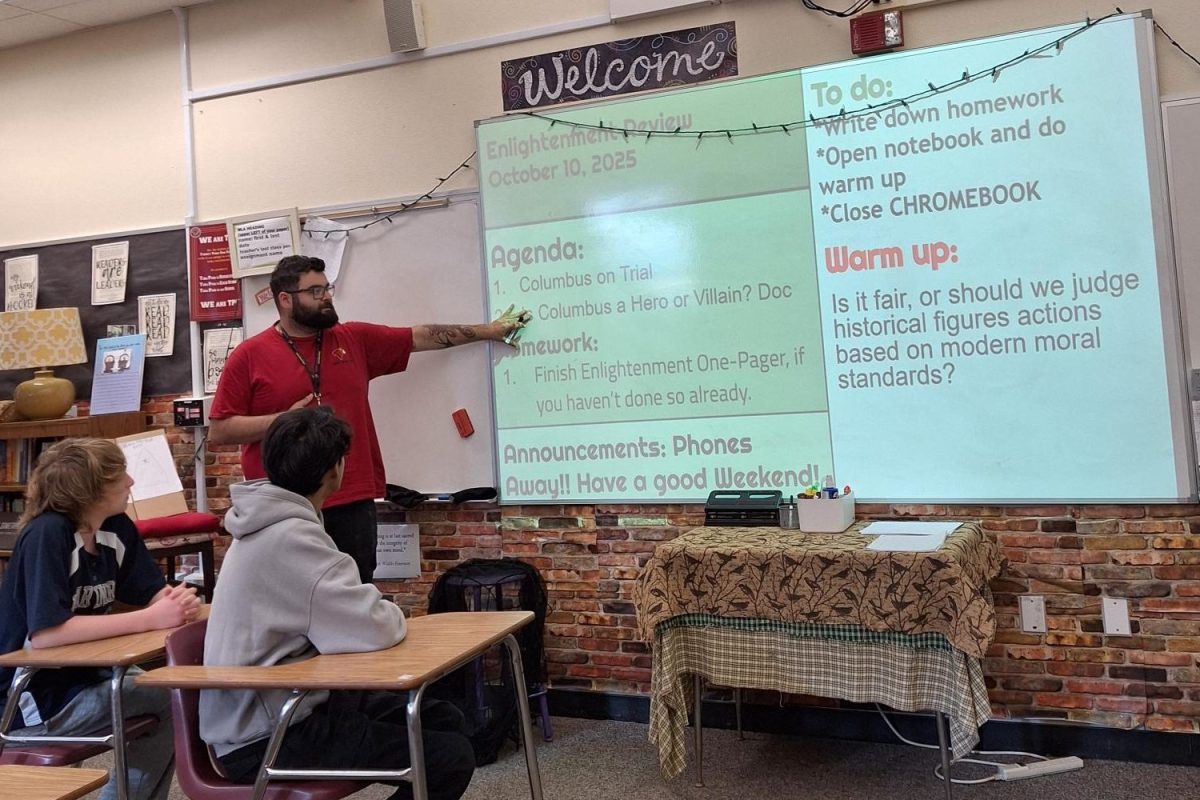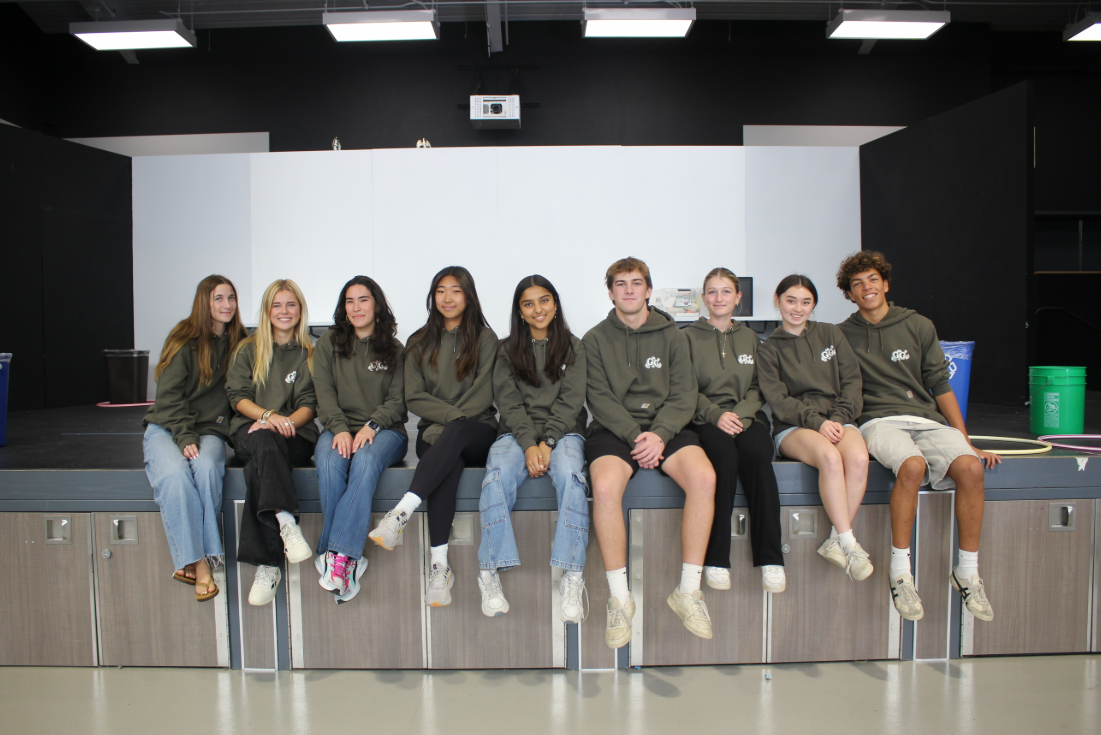As bright cardinal caps fly into the air, seniors conclude years of tireless work to achieve their dreams. For many, that dream is getting into college. But once college is in reach, what comes next? As Falcons venture out of the nest, and often their hometown, they encounter experiences different from high school in many regards, putting their adaptability to the test.
For Jocelyn Kim (‘23), a sophomore at University of California, Santa Cruz, college meant entering a whole different phase of student life.
“Academic setting wise, when you go off to college … you’re going into adulthood … you kind of have to do everything for yourself,” Kim said. “So, in college, I would say that [it’s important to] just be proactive and take time off to … make sure you’re on the right track, in terms of graduating and taking courses you need for your major and everything … I think that’s the biggest difference.”
The school operates on a semester system, whereas many colleges run on a quarter system. According to Yudam Hwang (‘23), a sophomore at University of California, Irvine, this has its pros and cons.
“The good part of having a quarter system is that you get to take more courses, and you’re done with it very quickly so you don’t really have to think about it,” Hwang said. “But also the bad part is, of course, it gives you very little time to adjust to new classes or surrounding peers, friends or professors.”
Hwang and Kim credited the school’s academically competitive nature and advanced courses for adequately preparing them for college.
“I can’t really stress this enough: It’s such a big advantage to come from a high school that is already academically challenging and competitive … we really aren’t the norm,” Kim said.
While the competitive nature of the school pressured Kim and her peers at times, especially during their junior and senior years, Kim saw this experience resurface as an advantage during her first quarter at college, when she did coursework from her writing and biology class.
“I really didn’t find [the assignment] challenging because it was the same load of coursework we did in high school already,” Kim said. “But [I heard] other people really struggle with even the basics of writing an essay with the right format, like using AP level languages, making sure that the research is well done and just the really basic things that I feel like are covered in high school or at least in our high school.”
Though course load varies by college, major and various other factors, school counselor Jennifer Magruder saw a similar trend in graduating students.
“Our kids going to the most selective schools feel well prepared and feel like they have enough time academically in their classes, because they’ve been hustling so much here … in college, academically, it almost feels lighter,” Magruder said.
At the same time, Hwang feels the school could have facilitated the transition more by helping students develop time management skills.
“It’s very hard,” Hwang said. ” … They always say, ‘oh, you should be doing time management,’ but they don’t really tell you how to.”
College is challenging in its own ways.
“Sometimes it’s even harder because in college you have to take courses that are difficult, but I do feel like in terms of environment, rather than being laid back, once you get to college, it’s kind of the fact that there’s so many different types of people you meet at campus … [and] the day-to-day lifestyle is super different … that allows it to be a little bit of a lighter atmosphere,” Kim said.
One of the key features of college versus high school is the difference in student population. Kim struggled finding a sense of belonging at first.
“I’m a second year student now, so things are a lot better, but especially when I first started college, even though TP is not necessarily a small school, once you get to college, the difference in the amount of students is very noticeable because now you’re at a public university and it’s like a whole different level,” Kim said. “So I did feel like I was just kind of starting everything from scratch.”
Kim advises incoming students to “try everything.”
“Go to the places you feel like you wouldn’t really normally go to because at college, one of the best things about being in college is the opportunities you have and just the amount of new activities and pathways you can explore and pursue,” Kim said.

For instance, Kim found a lot of her close friends through clubs she “thought she would never join.”
“I joined a dance club early this year; I never danced in my life, but I heard so many great things around me that this club is super fun and it’s a great way to make friends,” Kim said. “So I joined and I was kind of nervous at first, but I met a lot of people through that way.”
New environments can bring unexpected events. College students build connections in various ways — from classmates to extracurriculars — as they map out a new web of relationships miles away from home. Hwang found her closest friends through college dormitories.
“Definitely my first year friends stick with me till now … from what I heard from my other commuting friends who do not live in dorms, they tend to say it’s very, very difficult to make friends because they commute and it’s hard to kind of connect and make friends,” Hwang said. “I’d say it definitely [helps to be in a] dorm because you see them 24/7; it’s hard to not make friends when you’re in dorms.”
Embarking on this journey brought changes to the students’ personal lives as much as it did academically.
“For me, it’s just being in a new place, being in a new environment … it felt like I was just starting a new chapter in my life,” Kim said.
Hwang saw herself adapting into an entirely new lifestyle.
“It’s very interesting because you have to take on more responsibility than high school definitely,” Hwang said. “You need to cook food for yourself. You need to take care of your friendship. There’s no mom or dad to tell you to do this, do your homework, [you need] to wake up by yourself.”
As much as dramatic change can sound intimidating facing a crucial turning point in life, it is “developmentally appropriate,” according to Magruder.
“As things have changed, especially since COVID-19 and [the emergence of] different paths to education and careers, it’s still developmentally appropriate for 18-year-olds and 19-year-olds to start transitioning out of their parents’ house and manage [their own lives],” Magruder said. “College is a great place to ease into adulthood, so it carries great value, not just academically, but personally, as [students] mature and [their] brains finish developing.”
With most college application deadlines passed, many seniors feel burnt out, left searching for a new source of motivation as they await results.
“I remember in 12th grade when I finished submitting [college] applications, [during] the entire second half of school everyone around me was just like ‘now what?’” Kim said. “But as a college student … the simplest way to put it is, [college] is really exciting. For me, what excites me is just being able to do things I’ve never done before … like living on my own, going to classes and taking the bus.”








